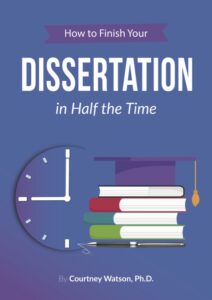When thinking about pursuing a Ph.D., one of the most pressing questions for many prospective graduate students is about the time commitment. In addition to the intellectual rigor of a Ph.D. program, it also demands a great deal of time.
Most Ph.D. programs take four to six years to complete, depending on the field of study. Any way you slice it, earning a Ph.D. requires a huge time investment. But is there a way to ease that burden?
Yes. One way is to be a part-time Ph.D. student, which allows you to earn your degree at a slower pace. While this is a good option for some graduate students, it is important to be well-informed about the obstacles you may encounter if you choose this path.
There are excellent reasons to pursue a Ph.D. part-time, but it is a non-traditional approach, and one that is not without challenges. If you are considering going to graduate school part-time, it pays to do your homework and understand what you’ll be signing up for.

These are a few frequently asked questions about pursuing a Ph.D. part-time:
- Why do some students choose to do their Ph.D. part-time?
- What are the challenges of being a part-time Ph.D. student?
- Are there any benefits to being a part-time Ph.D. student?
- How can I be a successful part-time Ph.D. student?
Why Be a Part-Time Ph.D. Student?
There are many reasons why students elect to go to graduate school part-time. For people with young children or other caregiving obligations plus full personal lives and jobs, there may not be enough hours in the day to pursue a Ph.D. full-time. When you already have a busy schedule, adding 12 hours per week of class plus dedicating time for (so much!) reading and completing assignments may be impossible.
Being a part-time Ph.D. student may also be a better option for graduate students who are mid-career. If you are already on a professional fast-track and getting a Ph.D. is just icing on the cake, then it probably doesn’t make sense to step away from that for the duration of your program. Taking one or two classes at a time can help you meet your educational goals while balancing your career responsibilities.
I’ve worked with many students across a variety of fields who pursued their Ph.D. part-time. For graduate students who are nurses, educators, and corporate professionals, going part-time is often the best way to make the most out of their graduate school experience while still fulfilling their obligations in careers they love. In a way, this path offers the best of both worlds, though there is more to the story.

Challenges for Part-Time Ph.D. Students
While pursuing a Ph.D. part-time makes for a lighter workload, it is by no means an easier way to get a Ph.D. There are inherent challenges to stretching out your Ph.D. program, and they should definitely be taken into consideration before you make the part-time leap.
For starters, some programs do not offer an option to attend part-time. If getting a Ph.D. part-time is something you’re thinking about, make sure the programs you’re applying to allow it.
It’s also important to know that being a part-time Ph.D student will likely limit your funding options. Research fellowships and teaching assistantships (which are great opportunities to build up your CV) are typically only offered to full-time graduate students. Merit scholarships vary, though, and it is possible to receive tuition reduction at some institutions while attending part-time. If cost is a concern, keep this in mind.
Another issue with spending an extended amount of time in your Ph.D. program is your dissertation chair and committee. While most tenured faculty members will remain at their institution for their entire careers, there can be a lot of upheaval in an academic department over the course of several years: retirements, budget cuts, turnover, etc.. If there is a professor that you really want to work with, it’s not a bad idea to check in with them and make sure they’re intending to stay put for a while.
Benefits to Pursuing a Ph.D. Part-Time

One of the best things about being a part-time Ph.D. student is having time on your side. The lock-step schedule imposed on full-time Ph.D. students can limit the breadth of their experience. Course rotation works against full-time students because many special courses are only offered once every few years. When I was a grad student, I remember being dismayed that there were so many interesting-looking courses that I couldn’t take if I wanted to graduate on time.
Another benefit to pursuing a Ph.D. part-time is getting to slow-down the break-neck pace of a graduate education. If you are only taking one class or so per semester instead of four, you’ll have more opportunity to dig deep in your research and create polished papers that are ready to be submitted to peer-reviewed journals. A published article is a huge coup for a graduate student, and it’s a great way to stand out in your program.
How to Succeed as a Part-Time Ph.D. Student
My best advice to part-time Ph.D. students is to get involved with their programs. Working towards a Ph.D. can be a very isolating experience, but it’s one that is made infinitely better with a supportive cohort. By having a foot in two worlds, part-time graduate students run the risk of not being able to fully participate in either one.
A significant part of the graduate school experience happens beyond classroom lectures and meetings with faculty. Make friends with other grad students in your cohort, and participate in events. Schedule coffee dates or nights out (or Zoom sessions!) to talk about classes and how things are going. Put together panels with your colleagues and meet up at conferences.
These are the things that make grad school meaningful. Whether you are pursuing your Ph.D. part-time or not, you’ll enjoy it a lot more if you’re all in.






